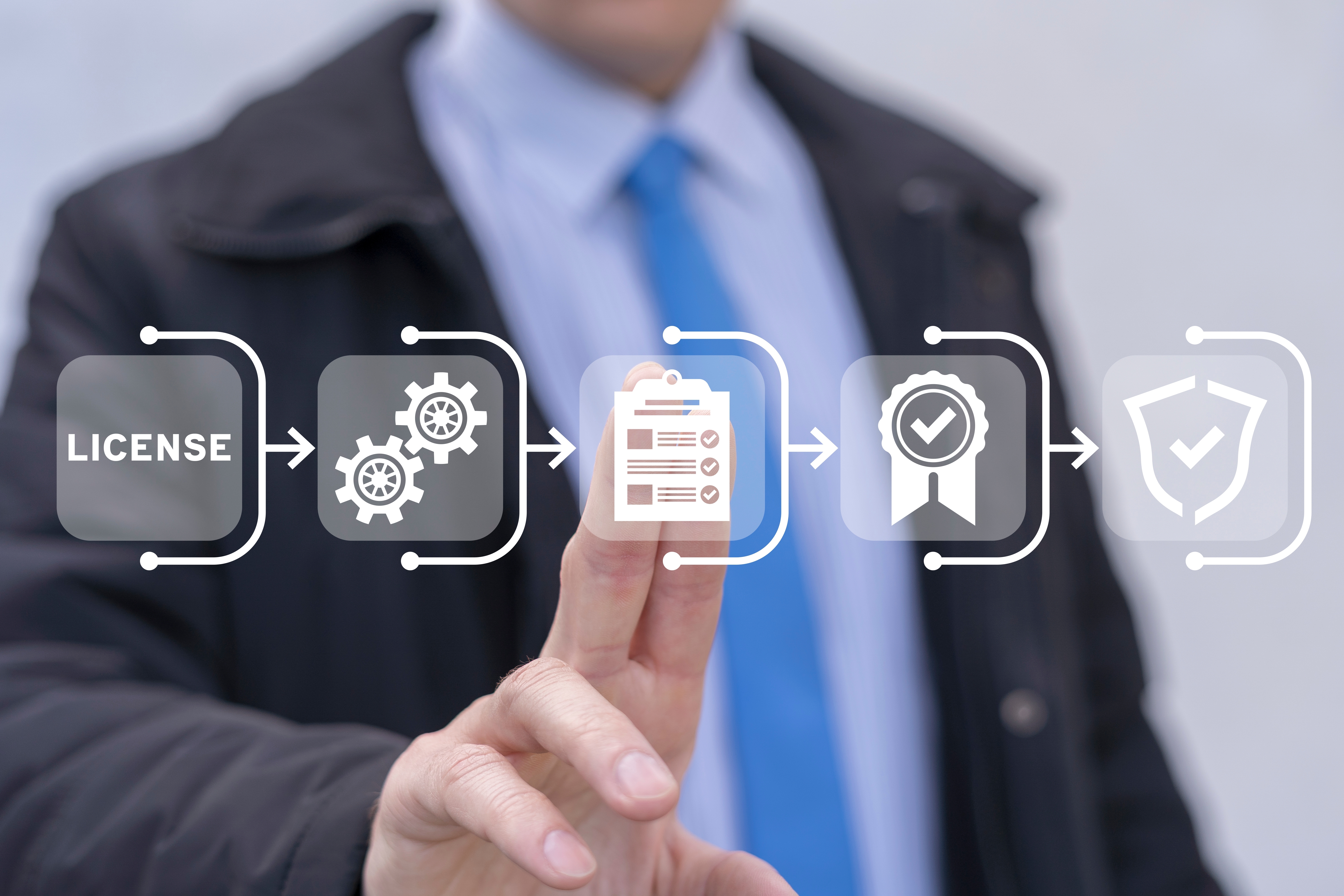
When you invite a contractor into your home, you’re not just buying parts and labor. You’re buying peace of mind. At ServiceOne Air Conditioning & Plumbing, “fully licensed and insured” isn’t a slogan; it’s a set of legal, financial, and ethical commitments that protect our customers in the Greater Orlando area every day.
What it takes to be licensed in Florida
Florida treats air conditioning and plumbing work as skilled trades that can affect health, safety, and property. That’s why contractors must hold a state license issued through the Florida Department of Business and Professional Regulation (DBPR) and its Construction Industry Licensing Board (CILB). To qualify as a Certified Air Conditioning Contractor (the statewide credential) an applicant must meet experience/education thresholds, pass state exams, clear a fingerprint-based background check, and demonstrate financial responsibility and insurance coverage.
The testing isn’t a mere formality. You have to know your stuff to pass! Florida uses standardized, open-book construction exams administered by Professional Testing, Inc. and delivered by Pearson VUE. A minimum score of 70% is required to pass. The current “Exam Instructions” detail the process and requirements candidates must satisfy before the Board will grant a license. (MyFloridaLicense, floridaexam.com)
Licensing also screens financial stability. The CILB’s published standard requires a FICO-derived credit score of 660 or higher; applicants below 660 must complete a Board-approved 14-hour Financial Responsibility and Stability course and satisfy additional conditions before they’re eligible. In plain English, Florida is checking that a contractor is both technically competent and financially sound before authorizing them to work in your home. (MyFloridaLicense)
Is there a test? How much does it cost to get licensed?
Yes—multiple parts. Candidates register through Professional Testing and sit for trade and Business & Finance sections with Pearson VUE. While exam providers sometimes update fee tables, the official instructions show the structure and current passing standard; the 70% bar applies to all parts. Beyond exam fees, applicants also pay state application/licensing fees, fingerprint/background fees, and must purchase insurance before the license is issued. (MyFloridaLicense, floridaexam.com)
Financial-responsibility compliance can add cost, too. If a candidate’s credit is under 660, the Board requires that 14-hour finance course and may require additional measures outlined in the CILB’s “Financial Responsibility and Stability Requirements” guidance. These requirements are designed to reduce the risk that a contractor fails mid-project or cannot cover fines or restitution if they violate the law. (MyFloridaLicense)
What “fully insured” means in Florida contracting
“Fully insured” isn’t marketing slang—it refers to carrying the insurance coverages Florida’s regulators require and the additional policies reputable firms carry to protect customers and employees.
At a minimum, Florida rules require contractors to maintain general liability and property damage insurance. For Division II trades like air conditioning and plumbing, the DBPR’s own licensing checklist ties approval to insurance in the amounts set by Board rule; industry guidance from Florida contractors’ schools aligns on $100,000 general liability and $25,000 property damage as the baseline minimums used by the Board for these categories. These policies protect the customer if accidental damage occurs during the job.
If a contractor has employees—and reputable HVAC/plumbing companies almost always do—Florida law generally requires workers’ compensation coverage in the construction industry with even one employee. That protects you from liability if an employee is injured on your property while doing permitted work. The Division of Workers’ Compensation explains the thresholds and enforcement for coverage.
Many established firms, including ServiceOne, also maintain additional protection such as commercial auto and umbrella/excess liability to ensure coverage scales to larger or more complex jobs. Those optional layers aren’t mandated by statute, but they’re a hallmark of a company committed to long-term service in its community.
Being “Fully Licensed and Insured” isn’t free
Two buckets of requirements are both poured into being licensed: one-time/episodic requirements (testing, application, fingerprints) and ongoing requirements (insurance premiums and renewals).
On the licensing side, candidates pay exam administration and registration charges and then state application and initial license fees. The official exam instructions confirm the multi-part, proctored format and 70% minimum, and DBPR’s licensing pages make clear that fingerprints, insurance, and financial responsibility all add to the compliance bill. It’s not unusual for a new contractor to invest thousands of dollars before their first permitted job, even before tools and trucks.
On the insurance side, premiums vary with company size, claims history, and limits. While the Board’s minimums focus on $100,000/$25,000 liability/property damage for Division II trades, established firms frequently carry higher limits to match project risk and customer expectations. Workers’ comp is rated on payroll, class codes, and experience—again, a meaningful recurring cost that legitimate companies budget for because it protects both customers and employees.
How licensing and insurance directly help you
Three big ways:
1) Quality and accountability. Licensure is the gate: it verifies experience, exam passage, a clean background, and financial responsibility. If something goes wrong, you’re not alone—DBPR regulates licensees and can investigate complaints, issue fines, and even revoke licenses. Florida also operates the Homeowners’ Construction Recovery Fund, which can compensate eligible homeowners financially harmed by licensed contractors who are unable to pay final judgments. That safety net does not apply when you hire an unlicensed operator
2) Insurance that actually pays. If accidental damage occurs, general liability and property damage coverage respond; if a worker is injured, workers’ comp pays benefits. Without those policies, homeowners can find claims denied or even face lawsuits when injuries occur on site. Florida’s mandatory coverage rules for construction exist to prevent exactly that outcome.
3) Permits and inspections that protect your home’s value. Licensed contractors can legally pull permits and schedule inspections in Orange, Seminole, Osceola, and Lake counties. That paper trail helps with resale, insurance underwriting, and warranty claims. Unpermitted work can void equipment warranties and complicate closings.
How common is unlicensed activity around Orlando?
Florida tracks this closely. In Fiscal Year 2023–24, DBPR’s Unlicensed Activity Program logged 4,372 unlicensed activity complaints statewide, determined 2,735 to be legally sufficient and opened investigations, and issued 1,118 Notices to Cease and Desist, 731 citations, and 1,013 Final Orders. Investigators conducted 524 sweep operations and participated in 12 enforcement operations, with 416 outreach events to educate consumers. Those are statewide figures, but they reflect a sustained effort that included teams from the Orlando office responding to severe-weather impacts across Central and North Florida. (MyFloridaLicense)
That much activity shows that there are lots of unethical, unskilled, “would-be” contractors who try to get your business.
Local law enforcement around the state also runs periodic stings with DBPR, resulting in arrests and citations for unlicensed contracting and failure to carry workers’ compensation—particularly following hurricanes when scams spike. While individual operations may occur outside Orange County, they illustrate the scope of the statewide problem and why verification matters.
If you’re curious about your neighborhood, DBPR provides a public database of unlicensed-activity complaints you can search by name or area, and the MyFloridaLicense portal lets you verify any contractor’s license status in seconds before you hire.
Bottom line: credibility you can verify
Being “fully licensed and insured” in Florida isn’t a box to tick. It’s a continuous commitment to training, testing, lawful permitting, safety, and financial responsibility—monitored by the same state agencies that protect you as a consumer. It costs time and money to do it right, but it’s also how we deliver comfortable homes, reliable plumbing, and stress-free service calls across Greater Orlando.
If you’re planning HVAC or plumbing work, you can always verify our credentials on the DBPR site and ask us to share current certificates of insurance. ServiceOne is proud to meet—and exceed—the State of Florida’s standards so you can focus on the result: a safer, more comfortable home.
Call us for any air conditioning or plumbing needs you have!





